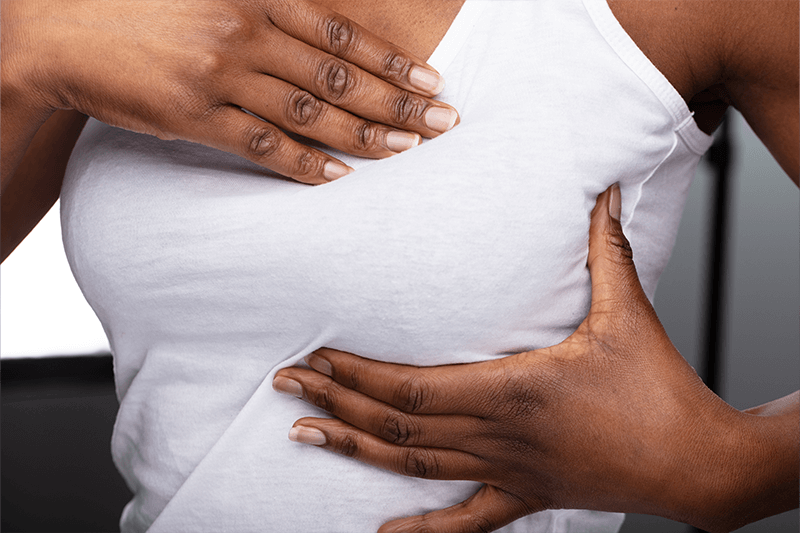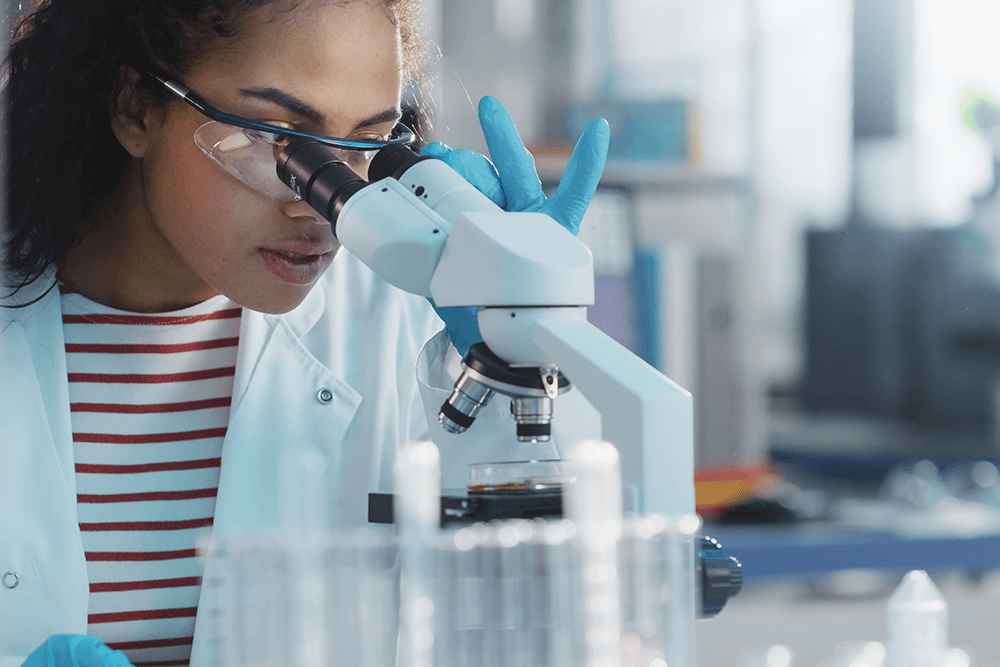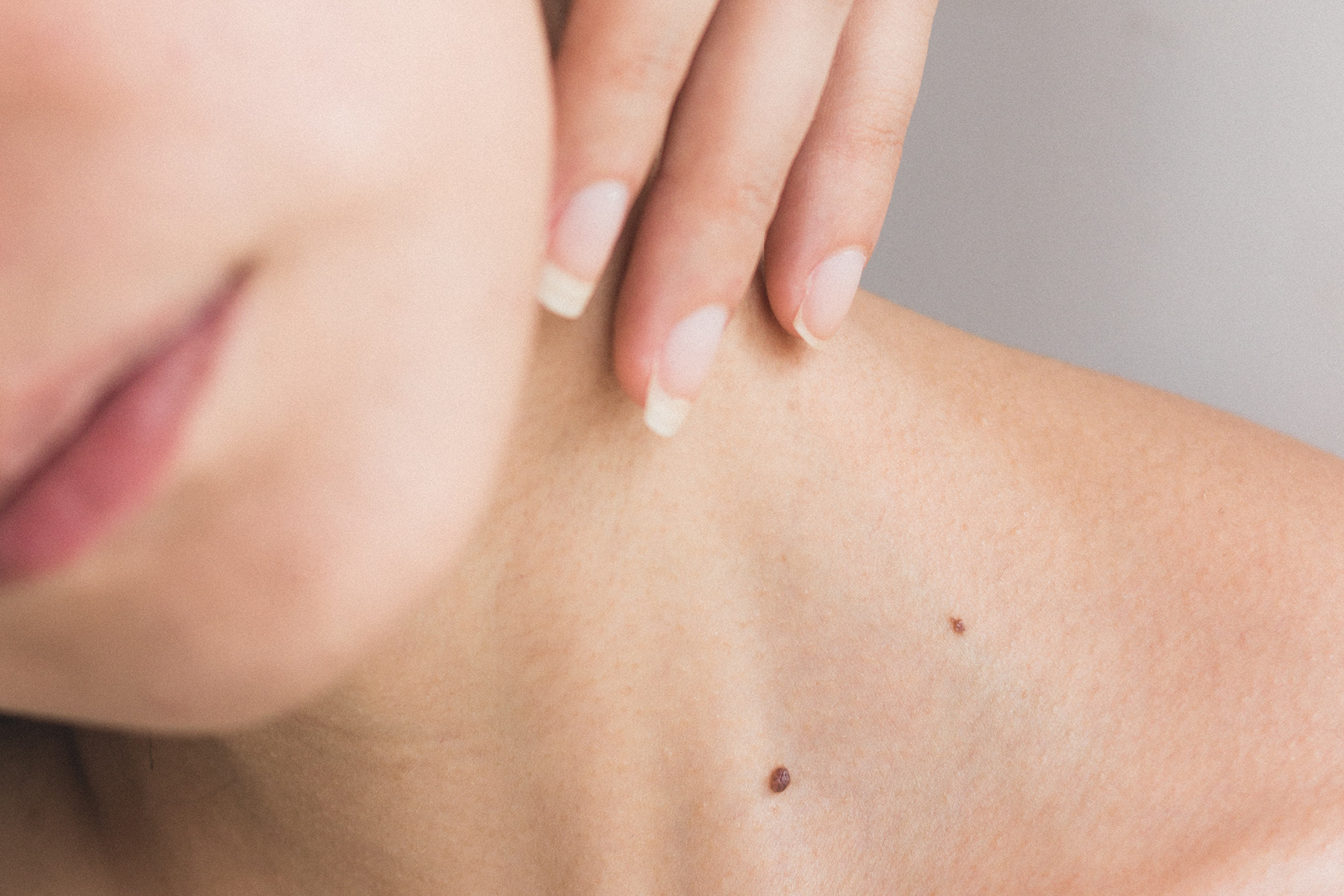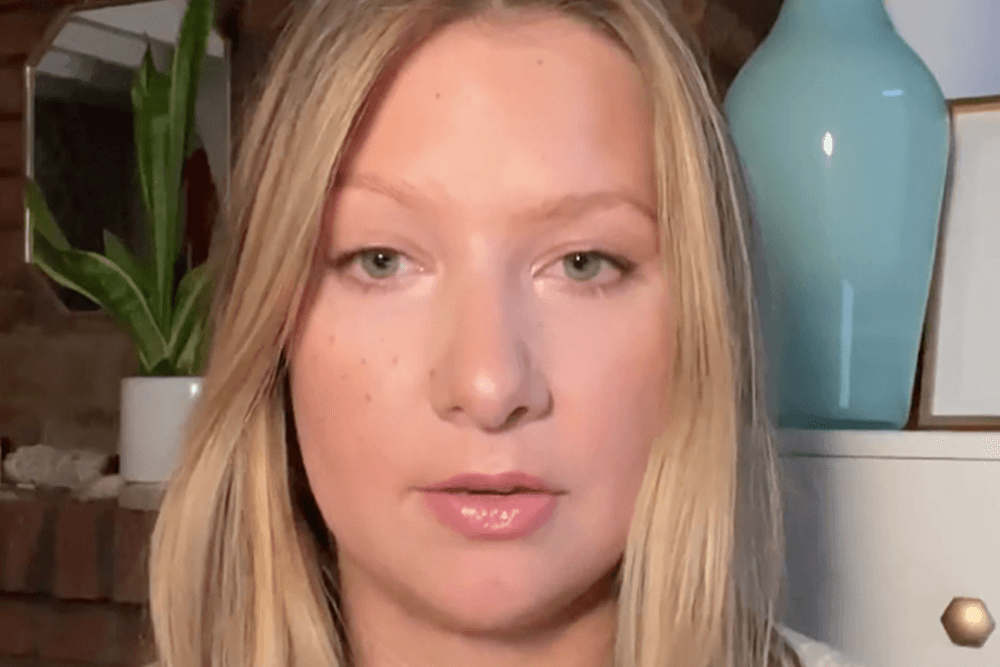The+Source
October is Breast Cancer Awareness Month, and while we all know the importance of performing regular self-exams to ensure we’re monitoring our breasts’ health, how many of us are actually keeping up with them? Early detection is key to successful treatment of any cancer — breast cancer included — and checking ourselves monthly is the easiest way to ensure we stay in good health. After all, the better acquainted you are with your body, the more likely you are to recognize a change in how it looks or feels. The good news is that DIYing a breast exam is easy and straightforward — and you can easily do it in the shower in between shampooing and shaving. Keep reading to learn exactly how to give yourself a breast exam, plus more information you should know about breast cancer detection.
How to do Breast Self Examination
Doctors recommend doing your self-check a week or two after the start of your period to ensure you’re not feeling overly sensitive.
First, start by raising one of your arms. You’ll be checking the breast on that side first; raising your arm ensures you have access to all breast tissue, including the tissue in the armpit. Using the flat pads of your fingers (rather than the tips, which have their own pulse and make it challenging to properly detect any changes in your breast), perform the following movements with firm pressure:
- Use alternating up-and-down vertical movements to probe the breast.
- Use circular movements radiating from the areola to the outermost perimeter of the breast to check for differences.
- Using movements comparable to those of the spokes of a wheel, palpate from the outer edge of the breast to the areola, continuing around the entire circumference of the breast.
- Finish by gently squeezing the nipple to check for any discharge.
Repeat all these motions on the other side, then perform the check again when lying down for added insurance. If you have augmented breasts, don’t worry — your implants actually positively affect a self-exam by pushing the breast tissue up and away from the body, making it easier to examine.
What to Look For When Performing a Breast Exam at Home
While searching for a lump is perhaps the most obvious goal of a self-exam, it’s not the only physical change that could raise a red flag. Other potential warning signs to look for include dimpling or rippling of the breast, a change in size or shape, redness or irritation, consistent pain or sensitivity of the breast or armpit (including swelling), changes to the nipple, or discharge from the nipple.
What to Do If You’ve Found a Concerning Change to Your Breast
First of all, remain calm — 60 - 80 percent of all breast lumps found are benign, especially if you’re under 40. If your lump feels soft and potentially full of fluid, that also lowers your likelihood of malignancy. The next step is to call a trusted healthcare provider for a clinical exam. They’re your health ally and will be able to tell you if further examination, like a diagnostic mammogram or biopsy, is necessary.
Other Things to Know About Early Breast Cancer Detection
Again, your healthcare provider is your best ally against any medical concerns. Once you’re over the age of 40, you’re clear to start scheduling annual mammograms for breast cancer screening if you’d like to, though some providers may let you start earlier than that if you have a family history of breast cancer. (We always suggest scheduling annual health checks like mammograms and skin cancer screenings around your birthday so they’re easy to remember.)
After the age of 45, annual mammograms are recommended, then beyond the age of 55, you can switch to every two years or continue with your yearly checkup. To make sure you’re working with a true expert in the field, look for imaging centers accredited by the American College of Radiology.
The most important thing to remember is that you should not avoid breast self-exams, clinical exams, or mammographies out of fear. We at Dr. Dennis Gross feel that knowledge is power and the earlier you know about anything even remotely suspect, the better. It could just save your life.



